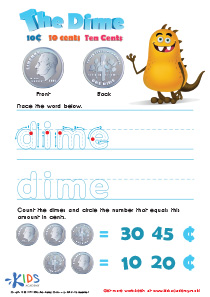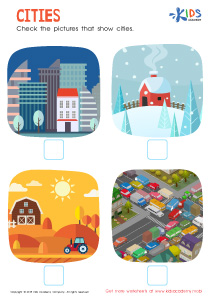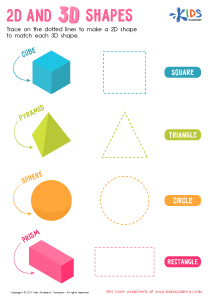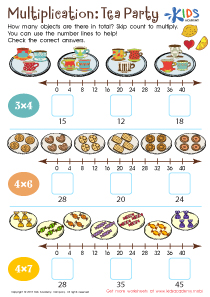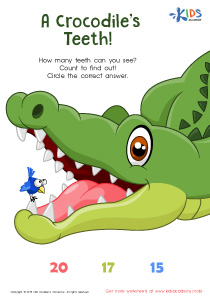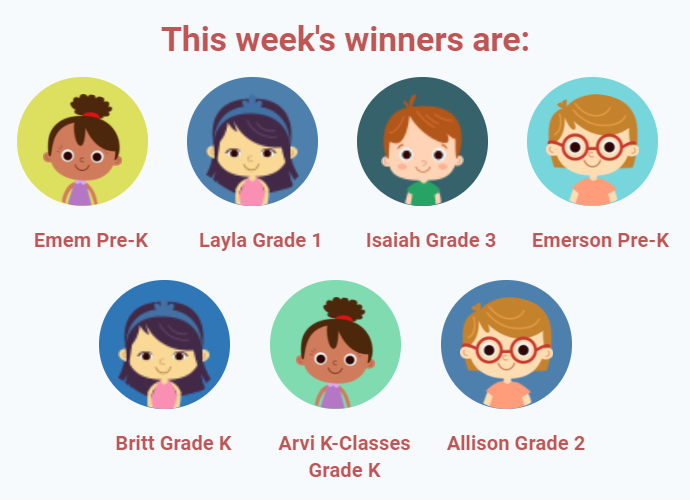Nouns and Pronouns Quizzes for Ages 6-7
8 results
8 filtered results
Clear all filters8 filtered results
-
From - To
Dive into the world of words with our engaging Interactive Assessment Quizzes tailored specifically for children Ages 6-7! Our quizzes are meticulously designed to test and reinforce knowledge on Nouns and Pronouns, ensuring a fun and educational experience. As your child navigates through each quiz, they'll receive immediate feedback, helping them learn and improve their grasp of these fundamental language concepts. Perfect for both homeschooling parents and teachers, our quizzes are an excellent tool for making the learning journey of Nouns and Pronouns exciting and effective for young learners. Watch as your child builds confidence and proficiency in no time!
Interactive quizzes focusing on Nouns and Pronouns for Ages 6-7 are an innovative educational tool designed to engage young learners in the foundational aspects of the English language. These quizzes are not just another task for children to complete; they are a vibrant, interactive, and fun way to grasp the basics of grammar that are crucial for linguistic development at this tender age.
Understanding nouns and pronouns is fundamental to mastering the English language. Nouns, the names of people, places, things, or ideas, and pronouns, the words that replace nouns, are the building blocks of effective communication. For children aged 6-7, getting to grips with these concepts can sometimes be challenging, yet, it is imperative for their academic growth. This is where our interactive quizzes come into play, turning what could be a daunting task into an exciting adventure.
The quizzes are specifically designed with the cognitive and developmental needs of 6-7-year-olds in mind. They incorporate colorful animations, engaging characters, and contexts that are relatable to a child’s everyday experiences. This means that when children interact with these quizzes, they are not only learning about nouns and pronouns but are also enhancing their cognitive skills such as memory, attention, and problem-solving.
One of the key advantages of these interactive quizzes is the immediate feedback provided. Unlike traditional classroom settings where children might have to wait to understand their mistakes, these quizzes offer instant corrections. This immediate response helps children to quickly grasp the concepts of nouns and pronouns, reinforcing their learning and encouraging them to correct their errors in real-time.
Moreover, the quizzes are designed to cater to various learning styles. Whether a child is a visual, auditory, or kinesthetic learner, the quizzes offer features that make learning accessible and enjoyable for everyone. Interactive elements like drag-and-drop exercises, fill-in-the-blanks, and matching games make learning dynamic and keep children engaged.
The flexibility and accessibility of these quizzes also mean that learning can take place anytime and anywhere. Whether at home, on the go, or in the classroom, these quizzes are readily available to provide a consistent learning experience. This flexibility supports the idea that learning is not confined to the classroom and encourages children to take charge of their educational journey.
Furthermore, the quizzes foster a sense of achievement and confidence in children. By progressing through the levels and seeing their scores improve, children are motivated to continue learning. This positive reinforcement is crucial in these formative years, as it builds a strong foundation for a lifelong love of learning.
In conclusion, our interactive quizzes on Nouns and Pronouns for Ages 6-7 are an indispensable tool in the educational development of children. They make learning enjoyable, accessible, and effective, catering to the diverse needs of young learners. By engaging with these quizzes, children not only learn about nouns and pronouns but also build essential cognitive skills, confidence, and a positive attitude towards learning that will benefit them throughout their educational journey and beyond.
